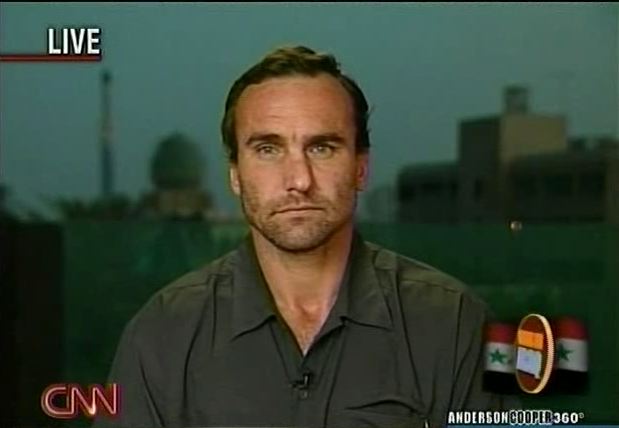AC: "Some days, you're taking your life in your hands..."

Click photo to play
Length: 5:00
ANDERSON COOPER: There were more lives lost in Iraq today. Seven people were killed. Police found 38 other bodies in and around Baghdad. The United Nations says in July and August, the number of civilians killed in Iraq reached a record high, nearly 6,600 people just in two months. These past few weeks have been even bloodier than usual in Baghdad, despite a U.S. -led crackdown.
CNN's Michael Ware joins us now from the capital.
Michael, who is primarily responsible for these huge numbers of civilian deaths?
MICHAEL WARE, CNN CORRESPONDENT: Well, these are the death squads on both sides of the sectarian divide, Anderson.
On one hand, you have al Qaeda-inspired or al Qaeda-led death teams. If you think back, Abu Musab al-Zarqawi, the founder of al Qaeda in Iraq, started this. This is his grand vision that he spelled out two years ago. Let's provoke sectarian war.
He started doing that by the car bombings and targetings of innocent Shia civilians, hoping to provoke the Shia. He even set up the Omar Brigades, which was the first organized death squads in Iraq.
We then saw the Shia respond in kind, and once they took government, their death squads put on police and army uniforms. So these are also the people responsible for these massive numbers. These are an American-backed government's death squads that are out there roaming at night in government uniforms, Anderson.
COOPER: And how are people targeted? Who gets kidnapped? Who gets killed and tortured? I mean, the accounts I've read, you know, 20 people being taken off a bus and, you know, being tortured to death. Is there a rhyme or reason as to who gets taken?
WARE: No. I mean, there's a certain randomness and there's a certain targeting. I mean, what you'll see is on both sides, that can literally just pull over a bus to the side of the road, go through identification and sort out who's Sunni and who's Shia. It all depends on who stopped the bus, which side lives and which side dies.
There's also targeted snatchings, as well. This is where both sides develop their own intelligence. They do surveillance on an individual whom they have information on. Either he's a Sunni or he's a Shia. He's involved in the government. He's involved in something else. They watch them, they hunt them and then they move in and strike.
Most disturbing, is when these are the government death squads. A Sunni can be at home in his house at night, and at 2 in the morning, police vehicles show up. Men in uniforms get out, show identification, taking him away, promising that he'll be returned. The family next sees him show up dead and tortured, Anderson.
COOPER: So if the government's involved, then how are U.S. forces dealing with this? How do they try to stop the death squads?
WARE: Well, the U.S. forces are doing a number of things. One is the Special Forces with Iraqi Special Forces are out there particularly hunting death squads. But these guys are limited to what intelligence and what information they have to guide them.
The other thing that U.S. forces are doing is this massive Battle for Baghdad, a huge military operation that's been rolling through the city since June. That's about securing the areas where the death squads have been operating.
The problem is, the death tolls drop in those areas when U.S. troops are there. The death squads simply move around them and hunt in other areas, waiting for the American troops to leave again.
The other problem being that all of this is done in partnership with the Iraqi security forces. And ultimately, when American troops leave an area, they hand it over to the Iraqi security forces. Well, it's the Iraqi security forces who house many of the death squads. That's the great irony, Anderson.
COOPER: Michael, when you get pulled over at a roadblock or stopped at a checkpoint and it's Iraqi security guys, how do you know whether or not you can trust them?
WARE: You don't. That's the thing. In the past it used to be that there would be random checkpoints thrown up or ad hoc checkpoints thrown up by insurgents or kidnap teams.
So you'd drive around a corner and there'd be a checkpoint, and you'd really know that you're in trouble. Now that takes place no matter who is manning the checkpoint. You don't know if it's legitimate or not. You don't know if it's insurgents or death squads in uniform or not. You don't even know if it's a real checkpoint, but they're still going to make trouble for you.
There is very, very limited degrees of either U.S. control or central government control over its own paramilitaries and military forces. So some days you're taking your life in your hands just going to an army checkpoint -- Anderson.
COOPER: Life in Baghdad. Michael Ware, stay safe. Thank you, Michael.
